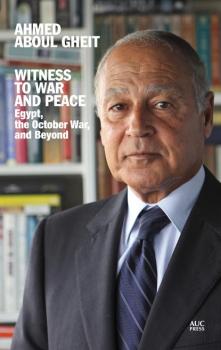Биографии и Мемуары
Различные книги в жанре Биографии и Мемуары100 великих кавалеров ордена Святого Андрея Первозванного
История ордена Святого Андрея Первозванного разделена на два периода – имперский и постсоветский. И в том, и в другом он остаётся высшей наградой государства, которая вручается за выдающиеся заслуги в области промышленности, политики, культуры и науки. Орден был восстановлен в 1998 году, через 300 лет после его основания Петром I. К числу современных кавалеров награды относятся: Дмитрий Лихачёв, Сергей Михалков, Михаил Калашников, Людмила Зыкина, Михаил Горбачёв и Расул Гамзатов. В очередной книге серии читатель узнает о кавалерах ордена времен Российской империи, многие из которых были гордостью и славой нашей державы.
Farewell Shiraz
In October 1999 during a trip to Cairo, Cyrus Kadivar, an exiled Iranian living in London, visited the tomb of the last shah and opened a Pandora's box. Haunted by nostalgia for a bygone era, he recalled a protected and idyllic childhood in the fabled city of Shiraz and his coming of age during the 1979 Iranian revolution. Back in London, he reflected on what had happened to him and his family after their uprooting and decided to conduct his own investigation into why he lost his country. He spent the next ten years seeking out witnesses who would shed light on the last days of Pahlavi rule. Among those he met were a former empress, ex-courtiers, disaffected revolutionaries, and the bereaved relatives of those who perished in the cataclysm. In <em>Farewell Shiraz,</em> Kadivar tells the story of his family and childhood against the tumultuous backdrop of twentieth-century Iran, from the 1905-1907 Constitutional Revolution to the fall of Mohammad Reza Shah Pahlavi, before presenting accounts of his meetings with key witnesses to the Shah's fall and the rise of Khomeini. Each of the people interviewed provides a richly detailed picture of the momentous events that took place and the human drama behind them. Combining exquisite vignettes with rare testimonials and first-hand interviews, Farewell Shiraz draws us into a sweeping yet often intimate account of a vanished world and offers a compelling investigation into a political earthquake whose reverberations still live with us today.
Marcus Simaika
Marcus Pasha Simaika (1864-1944) was born to a prominent Coptic family on the eve of the inauguration of the Suez Canal and the British occupation of Egypt. From a young age, he developed a passion for Coptic heritage and devoted his life to shedding light on centuries of Christian Egyptian history that had been neglected by ignorance or otherwise belittled and despised. He was not a professional archaeologist, an excavator, or a specialist scholar of Coptic language and literature. Rather, his achievement lies in his role as a visionary administrator who used his status to pursue relentlessly his dream of founding a Coptic Museum and preserving endangered monuments. During his lengthy career, first as a civil servant, then as a legislator and member of the Coptic community council, he maneuvered endlessly between the patriarch and the church hierarchy, the Coptic community council, the British authorities, and the government to bring them together in his fight to save Coptic heritage.This fascinating biography draws upon Simaika's unpublished memoirs as well as on other documents and photographs from the Simaika family archive to deepen our understanding of several important themes of modern Egyptian history: the development of Coptic archaeology and heritage studies, Egyptian-British interactions during the colonial and semi-colonial eras, shifting balances in the interaction of clergymen and the lay Coptic community, and the ever-sensitive evolution of relations between Copts and their Muslim countrymen.
Witness to War and Peace
The son of a fighter pilot, raised in an air force barracks, Ahmed Aboul Gheit was privy to the confidential meetings, undisclosed memoranda, and battle secrets of Egyptian diplomacy for many decades. After a stint at military college, he began his career at the Egyptian embassy in Cyprus before later going on to become permanent representative to the United Nations and eventually, Egypt’s minister of foreign affairs under Hosni Mubarak. In this fascinating memoir, Aboul Gheit looks back on the 1973 October War and the diplomatic efforts that followed it, revealing the secrets of his long career for the first time.
In vivid detail he describes the deliberations of Egypt’s political leadership in the run-up to the war, including the process of articulating Egypt’s war aims, the secret communications between President Sadat and U.S. Secretary of State Henry Kissinger, the role of the Soviet Union during the war, and the unfolding of events on the battlefront in Sinai. He then gives a detailed and deeply personal account of the arduous process of peacemaking that followed, covering the 1973 Geneva Conference, the 1977 Mena House Conference, Sadat’s visit to Israel, the 1978 Camp David Accords, and the subsequent 1979 Egyptian–Israeli Peace Treaty.
From Sadat’s impassioned address to his cabinet on the eve of the war to delegations ripping out the wiring at their respective hotels, from Jimmy Carter cycling through the bungalows at Camp David to Yitzhak Shamir’s blunt admissions to his Arab counterparts in the 1991 Madrid conference, Aboul Gheit offers an information-packed, first-person account of a turbulent time in Middle Eastern history.
Woman with Guitar
The only full-length biography in existence of a legendary American blues master, acknowledged as a major influence by musicians as diverse as Muddy Waters, Chuck Berry, Johnny Shines and Big Mama Thornton.At a time when organized feminism was at its lowest ebb, Memphis Minnie, a black working-class woman called no man master, defied gender stereotypes, and exemplified a radically adventurous lifestyle that makes most careers of the '20s and '30s seem dull by comparison.Drawing on folklore, psychoanalysis, critical theory, women's studies and surrealism, the authors' inspired explorations of Minnie's lyrics illuminate the poetics of popular culture of the time as well as the largely hidden history of working-class women's self-emancipation.Out of print for many years, this edition is an expanded version, including a previously unknown photo of Minnie and pages and pages of new biographical material: from information gleaned from census figures from her childhood days to a full listing of her nightclub appearances; an updated discography; and more.
Motel Chronicles
Motel Chronicles reveals the fast-moving and sometimes surprising world of the man behind the plays that have made Sam Shepard a living legend in the theater. Shepard chronicles his own life birth in Illinois, childhood memories of Guam, Pasadena and rural Southern California, adventures as ranch hand, waiter, rock musician, dramatist and film actor. Scenes from this book form the basis of his play Superstitions, and of the film (directed by Wim Wenders) Paris, Texas, winner of the Golden Palm Award at the 1984 Cannes Film Festival. " . . . essential reading. A scrapbook of short stories, autobiographical reveries, poetry and photographs, Motel Chronicles is full of verbal delights, as well as insights into its author's entire canon. Whether Mr. Shepard is reminiscing about his parents or daydreaming about cherished movies and cars of his youth, he speaks in pungent and ethereal language that remakes our West. Read in conjunction with the plays, Motel Chronicles also helps demystify the origins of Mr. Shepard's psychological obsessions and desolate frontier iconography."—Frank Rich, New York Times "If plays were put in time capsules, future generations would get a sharp-toothed profile of life in the U.S. in the past decade and half from the works of Sam Shepard."— Time "Sam Shepard is a shaman—a New World shaman. Sam is as American as peyote, magic mushrooms, Rock and Roll, and medicine bundles."—Jack Gelber Sam Shepard (1943) is a playwright, actor, author, screen writer and director whose work is performed on and off Broadway and in other theaters across the country. In 1979, he received the Pulitzer Prize for Drama for his play Buried Child . In 1983, he was nominated for an Academy Award for Best Supporting Actor in The Right Stuff . His other famous works include True West , A Lie of the Mind and Curse of the Starving Class . Fool For Love & the Sad Lament of Pecos Bill by Sam Shepard was also published by City Lights Publishers.









